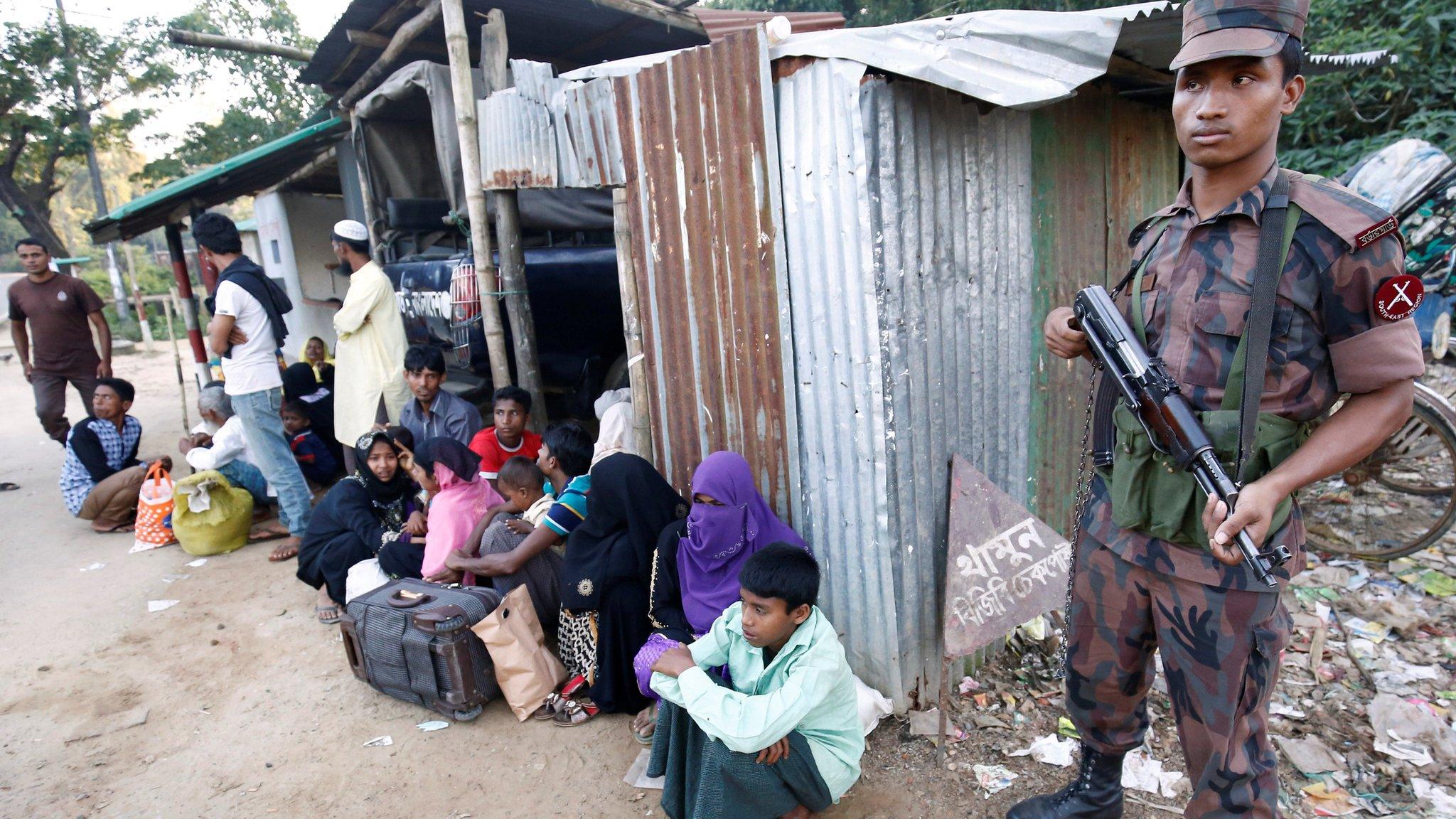Rohingya refugees in Bangladesh face relocation to island
- Published
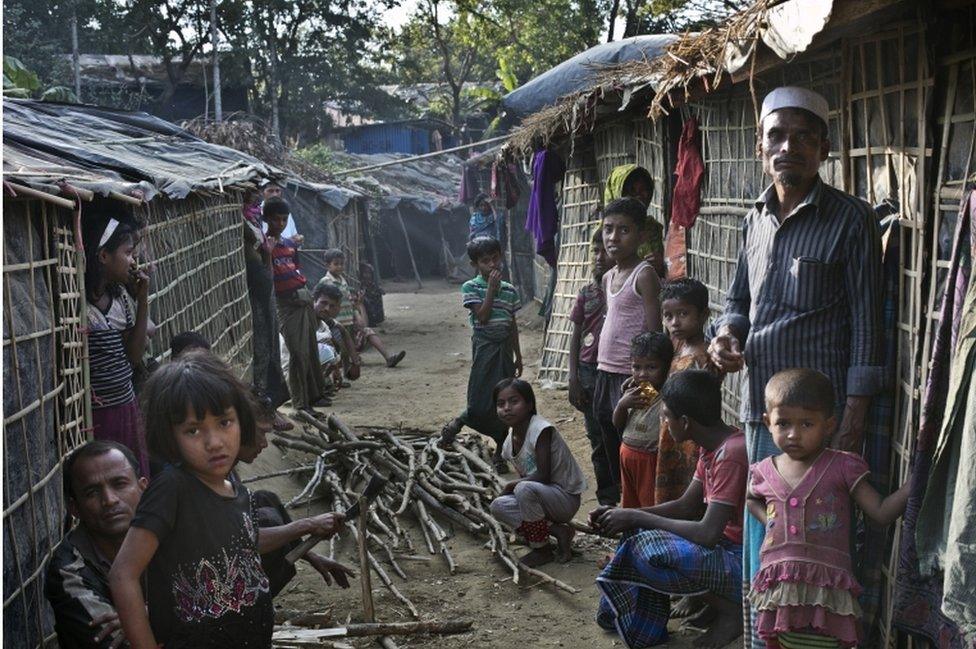
Bangladesh wants to move thousands of Rohingya refugees from their camps in Cox's Bazar
The Bangladesh government is moving to relocate tens of thousands of Rohingya Muslim refugees to a vulnerable island in the Bay of Bengal.
A government directive said they would be transferred to Thengar Char before being repatriated to Myanmar.
Rights groups have raised strong objections to the plan, saying it amounts to a forced relocation.
Thengar Char is engulfed by several feet of water at high tide, and has no roads or flood defences.
It was formed about a decade ago by sediment from the River Meghna, and does not appear on most maps. The low-lying land is around 30km (18 miles) east of Hatiya island, which has a population of 600,000 - and nine hours' journey from the camps where the Rohingya have taken shelter.
An official in the region told the AFP news agency Thengar Char was "only accessible during winter and is a haven for pirates".
The official said trees had been planted in a bid to protect the land from flooding, but these efforts were at least a decade off completion.
"It completely inundates during the monsoon," the official told AFP.
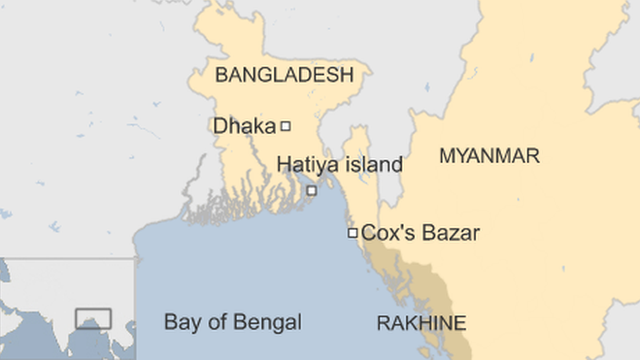
Thengar Char is too remote to appear on maps, but is next to Hatiya island
"It's a terrible idea to send someone to live there."
In Myanmar, the Rohingya are denied citizenship and treated as illegal migrants from Bangladesh.
But in Bangladesh too they are unwanted - leaving them persecuted, impoverished and effectively stateless.
Officials say an estimated 65,000 Rohingya have crossed into Bangladesh since October, fleeing violence in Myanmar's western state of Rakhine.
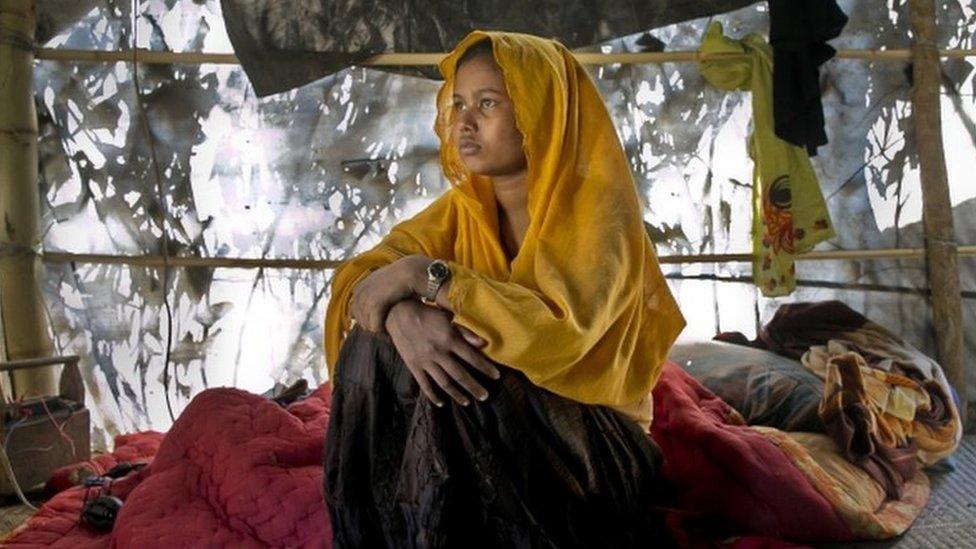
Many of the Rohingya have lived in their current refugee colonies for many years
Some 232,000 - both registered and unregistered - were already living in Bangladesh before that influx, many in refugee camps with poor facilities.
Now the Bangladesh government has set up a committee of state officials to help identify and relocate undocumented Myanmar nationals.
A push to attract tourists is being blamed in part for the proposal, which has the backing of Prime Minister Sheikh Hasina.
Cox's Bazar, which houses 32,000 Rohingya in a squalid refugee colony, is home to the world's longest unbroken beach and Bangladesh's largest resort. Officials fear the presence of the Rohingya may put off would-be holidaymakers.
Rohingya Muslims "hated and hounded from Burmese soil"
- Published10 January 2017
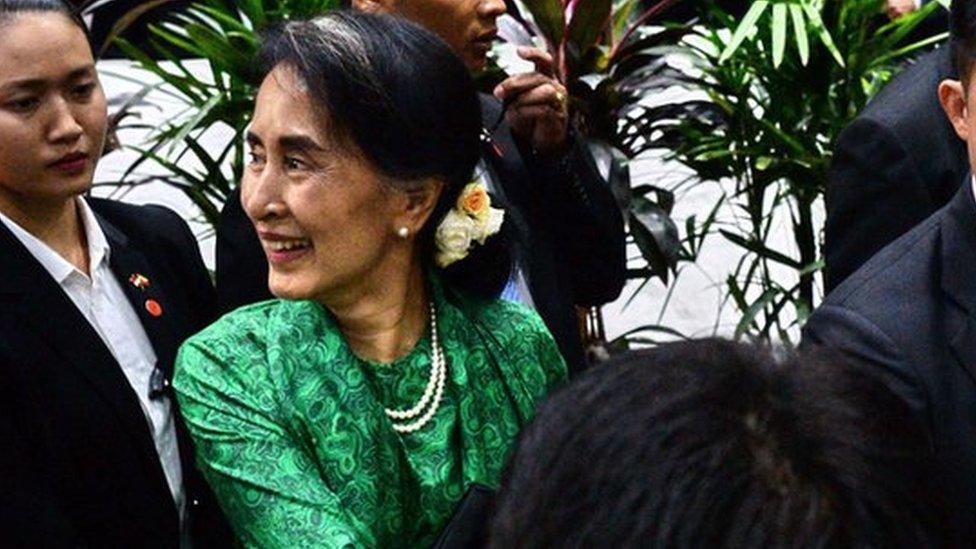
- Published30 December 2016
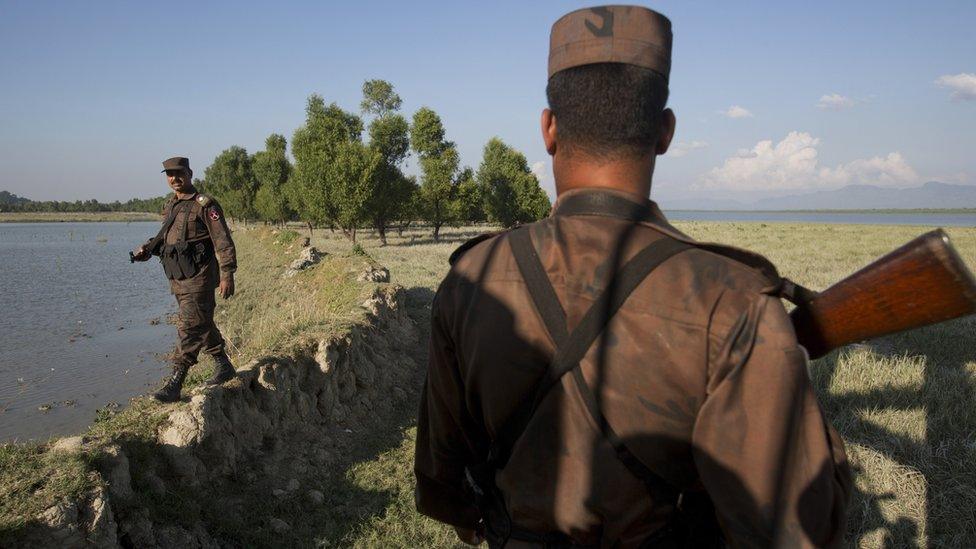
- Published24 November 2016
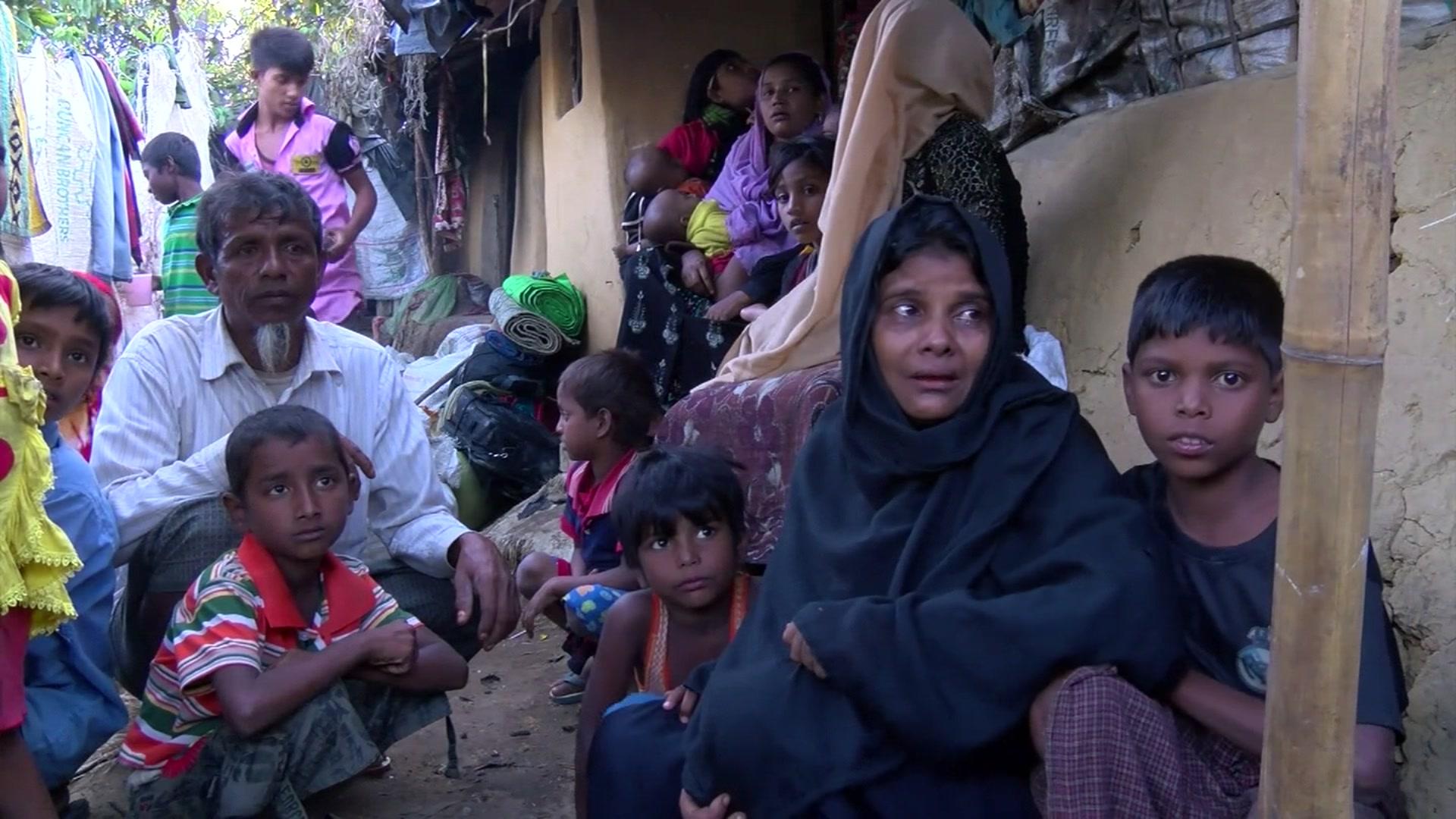
- Published23 November 2016
